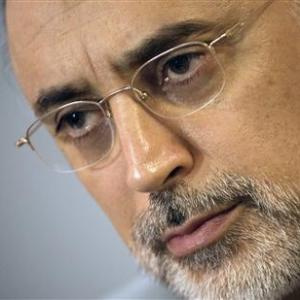The Influence of Internal Disputes on Foreign Policy

The news of the Foreign Minister’s impeachment is reflected in between foreign news. To explain the Mashaei circle and the roots of the troubles between the government, the parliament and upper institutions; the media has to explain the phenomena of exorcism and witchcraft, and they have to clarify that these are in line with the conflicts and disturbances before the parliamentary elections in 2012.
In the news in the foreign media we can find Ali Akbar Salehi’s statement quoted by Javan Online, an extremist conservative group which criticizes Rahim Mashaei, with an unknown source quoting him as saying “I have no say in the Foreign Ministry”. Even if we accept that he had no role in appointing Mohammad Sharif Malekzadeh as the financial and executive deputy of the Foreign Ministry; we cannot deny its impact in the foreign media, the public mind and the minds of those diplomats who Salehi will be meeting these days.
Ali Akbar Salehi is supposed to fly to Kazakhstan to attend the meeting of the Foreign Ministers of Islamic countries. He will meet the Foreign Minister of Iraq as well. Moreover, he has had many trips to Middle Eastern and Far Eastern countries, trying to negotiate on the sanctions and economic isolation of Iran and to soften the negative image portrayed against Iran.
Even though the diplomacy of Iranian diplomats is not completely influential or independent, and Iranian foreign policy is formed through other apparatuses as well, the shaky position of the ministers of Petroleum and Foreign affairs and the presidential deputies certainly tightens the bargaining and negotiating capabilities of these figures. It should be said that despite the need for integration, power and mobility in its foreign policy, Iran seems to be heading in the exact opposite way.
While the Iranian parliament and the members of the conservative party are using all their power to avert the deviation trend from the government and ministries, they have placed Iran’s position in a frail and weak place in international eyes. How can we expect to gain any points from our competitors in the regional and international arena in the current status quo, and how can we send officials and ministers who have been belittled domestically abroad to demonstrate a powerful image of themselves?
The current government did not start off well and it has lost a huge segment of its social acceptance in the last two years, and has weathered explicit and even violent opposition as well. After the uprisings (after the presidential election of 2009) were calmed down, other elements have started opposing the government and Ahmadinejad himself; which is coined as “limiting the power of the executive branch” by the president.
The issue of the illegal conduct of the government and its authoritarian approach are not new. People like Ayatollah Rafsanjani and the political reformist body had warned of and predicted these problems and this chaotic situation since the start of this government through their speeches and messages. These warnings seem to have gotten lost amid the political and border drawing of the system, and now that the country is stuck in the bottleneck of sanctions, economic struggles and the regional developments which may lead to the collapse of some of its allies, the mistakes of the government are revealed. These revelations may even lead to the impeachment of Ahmadinejad if he does not put aside his companions and positions.
Even the Information Ministry, which is considered a part of the cabinet, is acting otherwise and sent a letter to Ali Akbar Salehi and announced its disagreement with the appointment of Mohammad Sharif Malekzadeh, which finally lead to his removal.
The opposing and proponent medias all claim that the blame in appointing Malekzadeh is not on the shoulders of the Foreign Ministry and this was done despite Salehi’s unwillingness. However, parliament showed that it is not planning on granting any positions to the deviation trend.
This argument could have ended in sacrificing Ali Akbar Salehi and extremely weakening and demeaning Iran’s foreign policy. Salehi was also in danger of facing the rage of the president by forcing aside his financial and executive deputy, and ending up in the same situation as the resignation story of Intelligence Minister Moslehi. This story ended peacefully with the resignation of Malekzadeh, but doesn’t the Foreign Minister look fed up, compared to the past?

